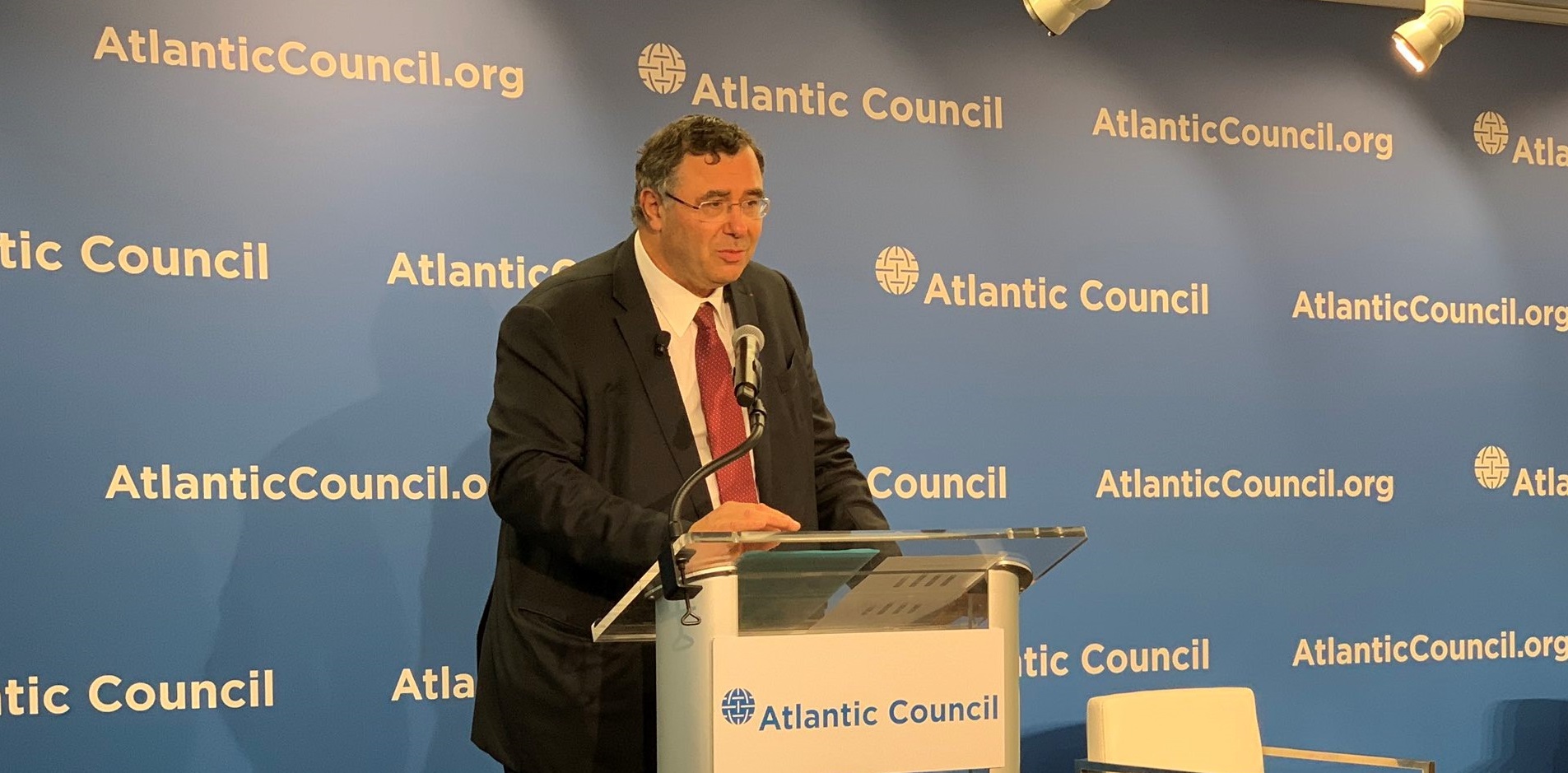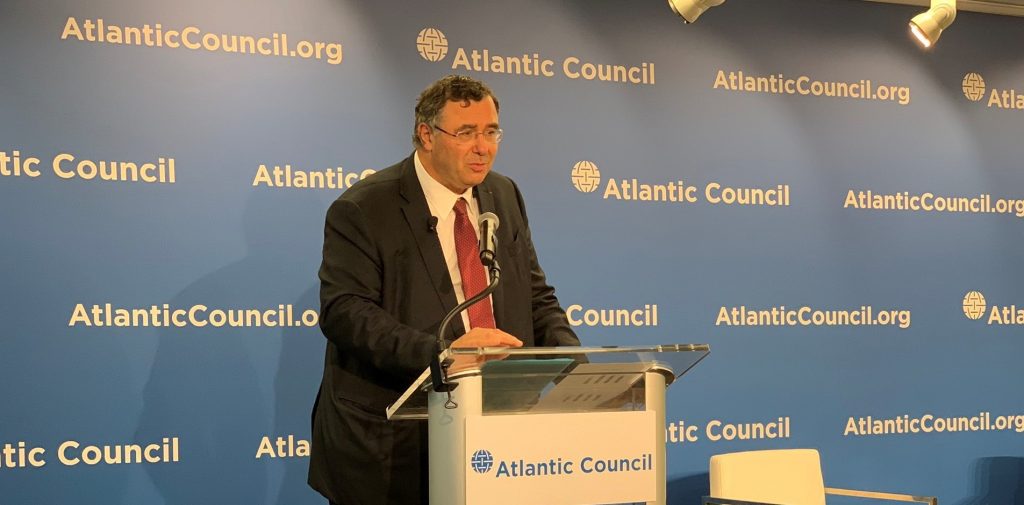
On May 16, 2019, the Atlantic Council Global Energy Center welcomed Patrick Pouyanné, chief executive officer and chairman of Total, for a public discussion on global energy market trends and Total’s new low-carbon energy strategy. Fred Kempe, president and chief executive officer of the Atlantic Council, delivered introductory remarks, underscoring Total’s interest in becoming a responsible and transparent hydrocarbon giant. This event marked Pouyanné’s first official visit to Atlantic Council headquarters.
Following Kempe’s opening remarks, Pouyanné took the podium to deliver a brief presentation regarding the global energy state of play and Total’s new three-pillar approach to energy exports and investment. Pouyanné underlined that major energy efficiency gains will be required to keep emissions in check while also meeting rising energy demand. He then laid out Total’s three-point plan for the energy future: (1) invest in and extract low-cost petroleum; (2) relinquish all coal assets in favor of natural gas, and in particular, liquefied natural gas (LNG); and (3) gradually reduce the total carbon content of all products. As his overall goal, Pouyanné intends to see Total emerge as a leading, responsible energy major with a more diverse portfolio, moving beyond traditional oil and gas assets and into low-carbon electricity and energy sources.
The session then moved into a one-on-one discussion between Pouyanné and Kempe, who acted as moderator. Kempe asked Pouyanné a series of pointed questions covering an array of topics, such as Total’s investments in low-carbon solutions and battery storage technologies, the impact of geopolitical risk on the hydrocarbon industry, and the future of the firm’s energy mix. In response, Mr. Pouyanné affirmed that Total’s future lay with LNG and other forms of natural gas, predicting a shift from “oil and gas” to “gas and oil,” with natural gas expected to make up at least half the company’s asset portfolio in the short term. With regard to the impact of geopolitics on the energy industry, Total has spread its risk across the world from Russia to Papua New Guinea, with diversity of investment serving as a safety net against the collapse of any one partnership. In terms of low-carbon commitments, Pouyanné intends to cut flaring by eighty percent and continue investing in carbon capture technology and lithium ion batteries, as well as natural carbon sinks, such as forest lands.
The discussion then shifted to the audience, with members of the public raising important questions concerning Total’s activities in the Eastern Mediterranean, the company’s increasing fiscal transparency, and the impact of US-Iran tensions on the price of oil. Pouyanné defended his investment interests in Israeli and Lebanese offshore gas, explaining that Eastern Mediterranean resources would conveniently serve growing European energy demand. The Total chief executive rationalized that growing animosity between the United States and Iran would benefit his firm and other petroleum producers, as it will raise the price of oil at the expense of consumers. As his final thought, Pouyanné underscored his mission to provide the public with greater transparency, and pointed to Total’s successful track record in publishing contracts and removing assets from tax havens. To conclude, Kempe thanked Pouyanné for a dynamic and open discussion, as well as the audience for its active participation.
To watch the event, check out the webcast here.
Image: Patrick Pouyanné giving remarks at the Atlantic Council.
